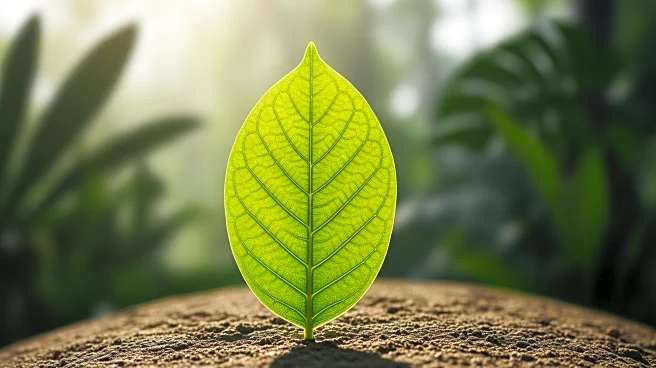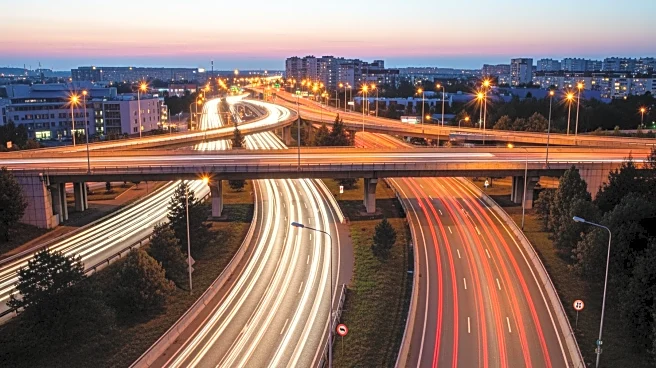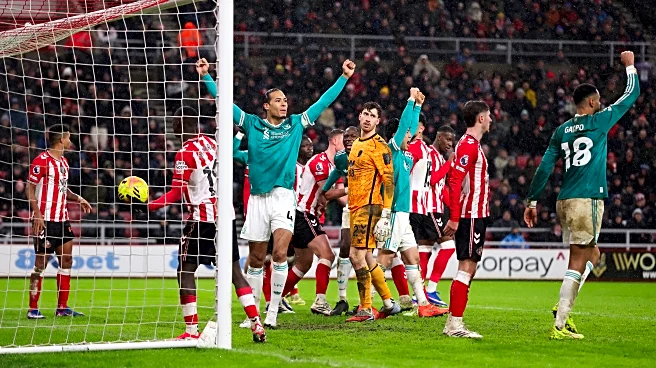What's Happening?
The United Nations Climate Change Conference (COP30) is currently taking place in Belém, Brazil, with a focus on Indigenous communities and their role in climate advocacy. Ean Thomas Tafoya, vice president of state programs at GreenLatinos, is participating
in the conference, emphasizing the importance of Latino and Indigenous communities in addressing environmental issues. GreenLatinos, an environmental nonprofit, connects Latino communities from the United States to those across Latin America, highlighting their shared challenges due to environmental pollution and climate change. Tafoya is calling for increased involvement from young people, who are expected to face significant impacts from the climate crisis. Despite challenges, Tafoya remains optimistic, noting that subnational governments are leading climate advocacy efforts, and promoting initiatives like the Belém Action Network for clean energy solutions.
Why It's Important?
The participation of GreenLatinos at COP30 underscores the critical role Latino and Indigenous communities play in the global climate movement. These communities are disproportionately affected by environmental degradation and climate change, yet they receive minimal global climate finance. By advocating for increased youth involvement and subnational government action, GreenLatinos aim to drive meaningful change and push for equitable climate solutions. The conference serves as a platform to amplify the voices of those most impacted by climate issues, potentially influencing policy and funding decisions that could benefit vulnerable populations in the U.S. and Latin America.
What's Next?
As COP30 progresses, GreenLatinos and other advocacy groups will continue to push for greater climate action and financial support for affected communities. The focus will be on mobilizing young people and leveraging subnational government initiatives to advance clean energy solutions. The outcomes of the conference could lead to increased collaboration and funding for climate projects in Latin America, potentially setting a precedent for future international climate negotiations.
Beyond the Headlines
The emphasis on Indigenous and Latino communities at COP30 highlights broader ethical and cultural dimensions of the climate crisis. These communities possess valuable traditional knowledge and practices that can contribute to sustainable solutions. Recognizing and integrating their perspectives into global climate strategies could foster more inclusive and effective approaches to environmental stewardship. Additionally, the conference may catalyze long-term shifts in how climate finance is allocated, prioritizing regions and populations that have historically been overlooked.
















